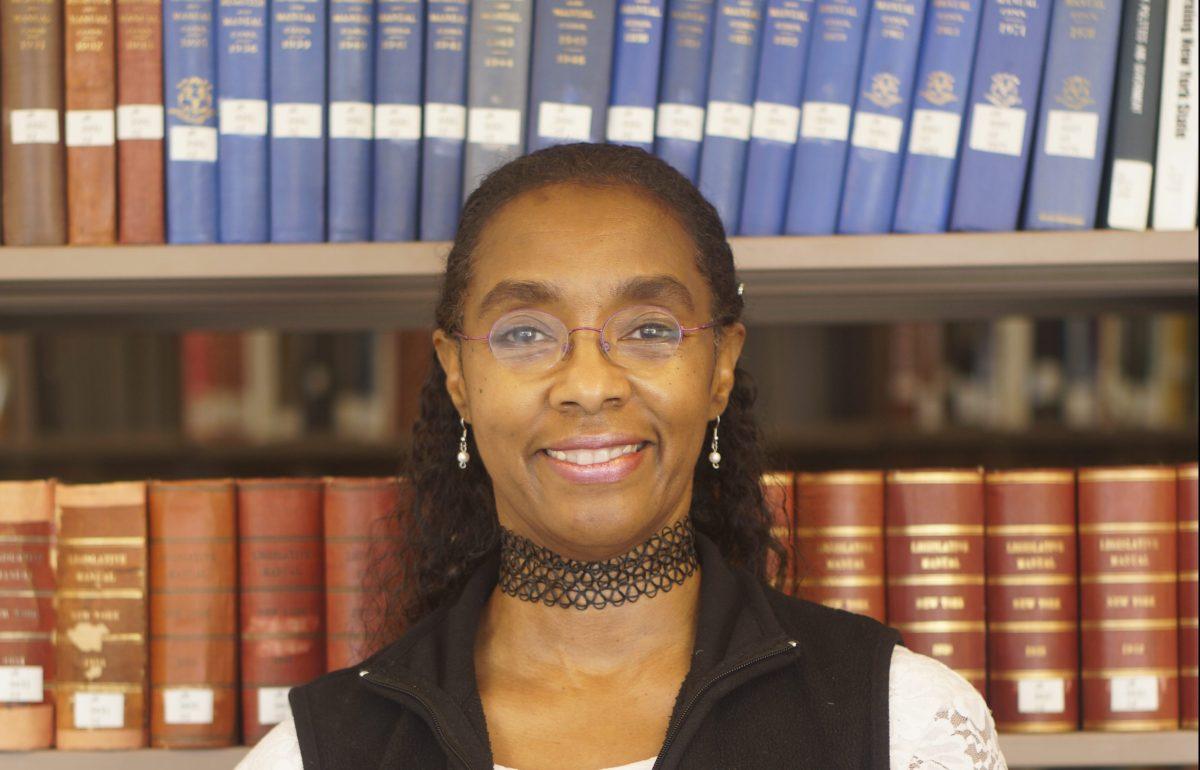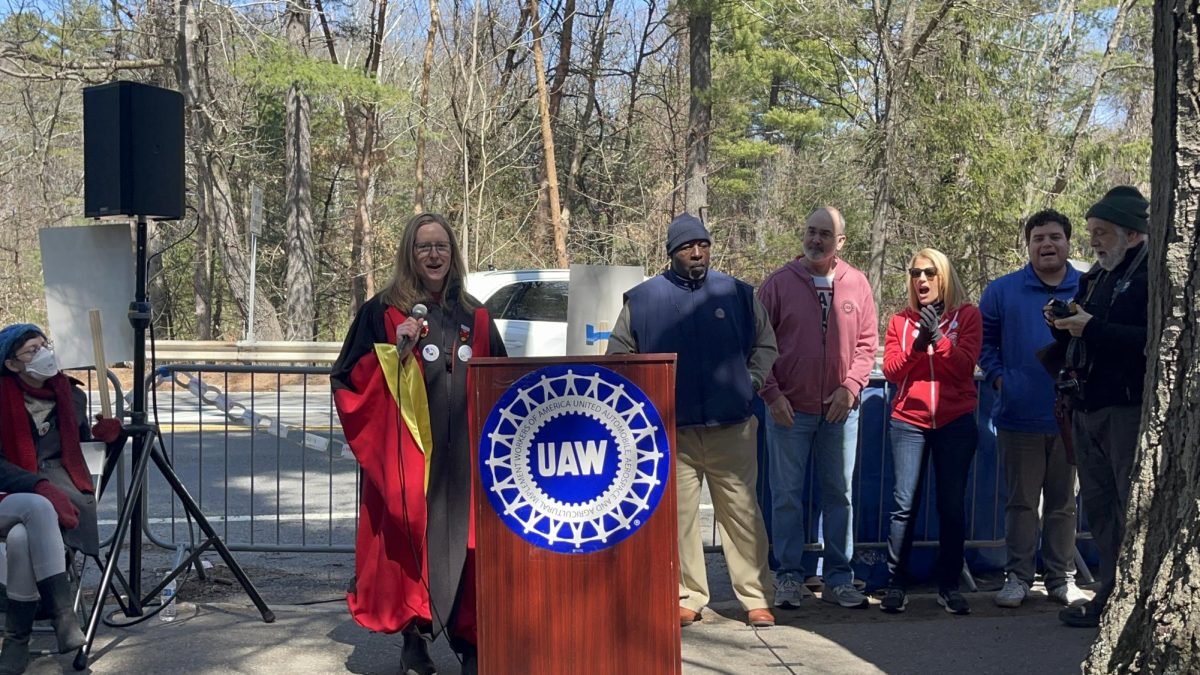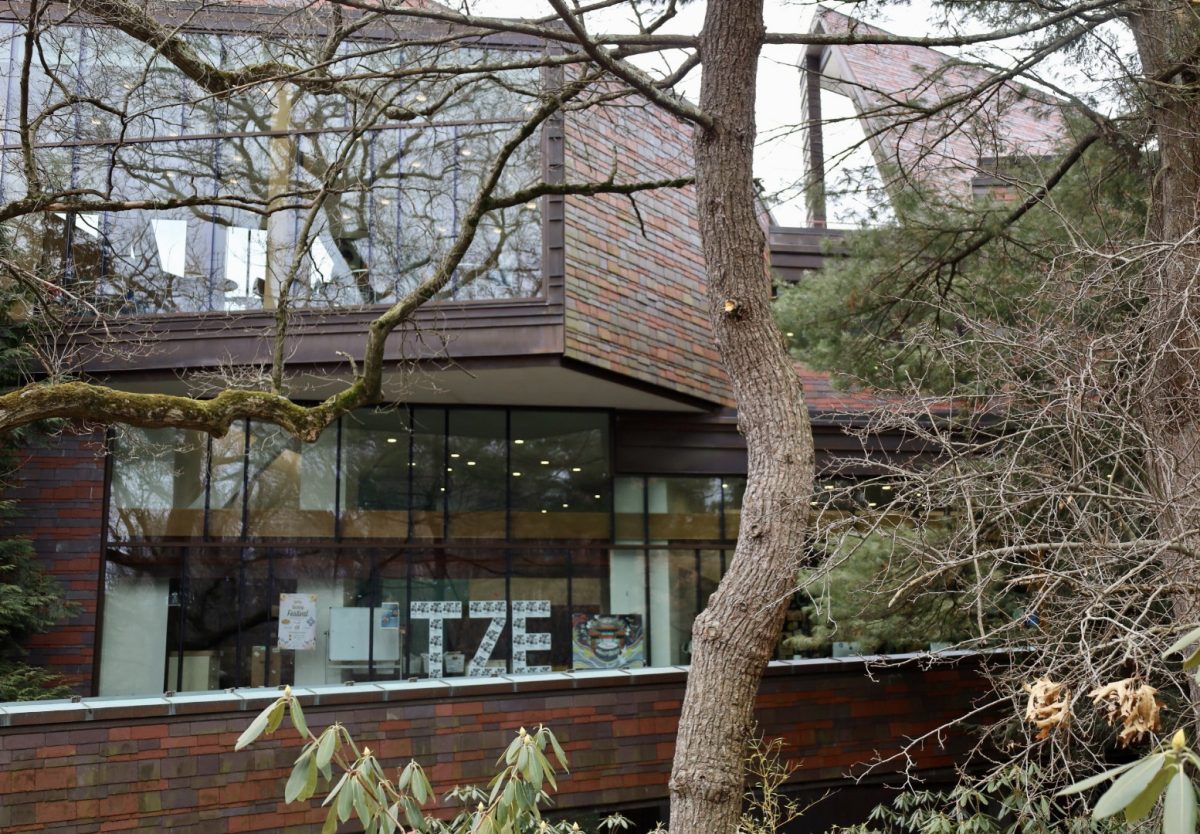Lecturer in Africana Studies Ophera Davis loves to develop “the whole student.”
“That’s my goal,” she explained: “to develop the student inside and outside of the classroom in every way.”
“Inside of the classroom, the main thing I want to do in my role is to teach students to think critically, to teach students to consider all cultural values effectively and analyze them and evaluate situations, and once they do that, I want them to develop solutions that are inclusive and transparent,” she said.
She also often participates in students’ extracurricular activities. This year, she is serving as the advisor of a four-student Ruhlman panel called “African Diaspora Members Experiences Through the Lens of Black Psychology.” In addition, Eva Mullarkey ’20, a student in Professor Davis’ “Breaking the glass ceiling: women in the workplace” class, explained that she “went to one of our student’s jazz events on a Sunday! How nice is that?”
As Professor Davis put it, “I try in every way to be involved in student organizations from speaking with Active Minds, with speaking to Ethos, from speaking to Mezcla, speaking to Wellesley Asian students—it doesn’t matter, I am there. I go to student events all the time; I love students, like I love teaching.”
She is highly praised by her students, many of whom feel that her commitment to her students goes above and beyond the norm by encouraging them to support each other.
“She’s always encouraging us, and I feel like she is instilling in us the community that Wellesley used to be. … Wellesley is supposed to be a place where Wellesley students support other Wellesley students, Wellesley used to be a place where people went to town halls and people supported each other, people went to each other’s events… she’s really instilling a sense of community in us that I don’t always feel at Wellesley,” Mullarkey said.
However, the care and attention her students say she has for each student is apparently not enough for Wellesley College. Professor Davis was informed in fall 2016 that her contract at Wellesley College will not be renewed this year, although the reason for this decision is unclear and has been kept from Professor Davis and students asking for answers. “I have only been told that my contract has not been, and will not be, renewed,” she said.
Professor Davis was first hired as an adjunct professor in the Africana Studies department from 2004 to 2005 and was rehired from 2006-2008. She was rehired a third time for a three-year lecturer position from 2015 to 2018.
A group of about 60 students has organized an informal coalition in order to fight against Professor Davis’ departure. According to a coalition leader, the group has set up meetings with faculty and with each other, where they circulate information and discussed what steps the group should take next. They are just as confused about the reasons for Professor Davis’ departure as she is.
“I am unsure why this would be the case. She is loved by her students and has dedicated so much time and energy into us. I do not understand why administration would be against what the students want,” said an anonymous coalition leader.
Chair of the Africana Studies department Filomina Steady explained that as a lecturer, Professor Davis was never on track for tenure. Instead, her lecturer contract was three years long and has been completed. “This is not unusual at Wellesley. We are grateful for her contribution and that of all the other faculty to the department,” she said.
Professor Steady added that “all faculty positions and contracts are allocated and approved by the administration and not the department.”
However, Provost Andrew Shennan explained that “The Provost’s office reappoints faculty at the request of, and on the recommendation of, an academic department or program, and in this case we have received no such request or recommendation.”
Regarding the reasons for Professor Davis’ departure, one anonymous coalition leader said, “Only the department chair can provide us with this answer.”
The cause for Professor Davis’ contract not being renewed is especially confusing given the glowing praise she receives from her students and the fact that she appears to meet the requirements for lecturers. According to the Faculty Handbook for the Articles of Government, “Staffing need within a department is the fundamental criterion for the continuation of a lecturer position. The other criteria for lecturers consist of excellent teaching (including supervising independent research, as appropriate), professional development, and service (including advising students), with the primary criterion being teaching.”
The document additionally states that “If the departmental R&P [Reappointments and Promotions] committee can provide justification that the department’s needs would be served best by a term position rather than a tenure-eligible position and staffing units are available, it is possible to request a lecturer position.” It continues, “Contracts for lecturers and senior lecturers will be based on staffing needs within a department.”
Neither Professor Steady nor Provost Shennan responded to questions about staffing needs within the department or about whether the R&P provided justification that the department’s needs would best be served by a term position rather than a tenure-eligible one.
Professor Davis’ students are greatly displeased that she is leaving, especially in a department that has only seven faculty members. Many believe that her departure will have an enormous impact on the Africana Studies department and its integrity.
“Professor Davis is not only one of two black American women in the Africana department, she is extremely involved with students and always makes herself available to helping us whether it is academically, personally or career-oriented. Her classes reach into the past for historical context, and she always makes sure that we understand and make connections to modern day issues. She wants what is best for us and practices it in the way she teaches and treats us. The Africana Department would not only lose a loving and driven professor, but an exemplary community member who encourages students to engage with each other and take interest in all that Africana Studies has to offer,” explained an anonymous coalition leader.
“I have never met a more inspirational professor and it is ridiculous that the Africana Studies Department is willingly letting go of such a valuable professor. If Professor Davis is removed from the department, they will also be losing my faith in them to be honest and true to the mission of the school and to the history of the department,” another anonymous leader explained.
The coalition has been attempting to discuss the issue with administration, but doing so has proved to be more difficult than they had expected because administrators are unwilling to discuss the matter. Despite the students’ multiple requests for a meeting with Professor Steady, conveyed through emails in which they discuss their concerns about the future of the Africana Studies department, an appointment has yet to be scheduled.
“In my perspective, the administration has done what they can to distance themselves from the situation,” explained an anonymous coalition leader. “Though they have given helpful advice, such as informing us that the decision to rehire Professor Davis is the choice of the department’s chair, they also express their ability to do anything to help our situation. While they truly may not be able to help, it does not change the fact that the response has been very distancing.”
Chief Communications Officer Elizabeth Gildersleeve said that “The College is committed to the Africana Studies Department, which is currently searching for a two-year lecturer and has also been authorized to run a tenure-track search in the fall.”
Students are deeply frustrated by the absence of response from the administration and the lack of apparent reasoning for Professor Davis’ contact not being renewed.
“I’ve been very surprised at how nonchalant administration has been,” said an anonymous coalition leader. “I thought that they would listen to us and care about our voices, but that doesn’t seem to be the case. I’ve always thought so highly of administration and the Africana Department, but the way we have been responded to makes the value of community seem like a facade.”






